It is 3am in Jerusalem. These days, that is not an unusual time for me to be awake. Like many Israelis, I have become a political insomniac. The disruption of sleep is a small reflection of the dread so many of us feel for the long-term viability of the Jewish state.
Here, then, in no particular order, are some late-night thoughts on this Israeli moment.
The war on the Start-Up Nation
For me, the most compelling of all the slogans of the democratic movement was imprinted on a giant banner one recent Saturday night at the weekly protest on Kaplan Street in Tel Aviv: “Save Our Start-Up Nation.”
Even more than a struggle for democracy, this is a struggle to save the Israeli success story.
The greatest danger to the Start-up Nation is an emigration of despair. In fact, that exit has quietly begun. And if the government continues to fundamentally transform Israel in its image – an alliance of ultra-nationalists, religious fundamentalists and the merely corrupt – we will experience our first ideologically motivated mass flight, among those who connect this country to the global economy and the democratic world.
In one sense, what is happening to Israel is hardly unusual. Populist wars against elites are being waged all over the world. And yet Israel is unique: While other societies can endure a populist wave of resentment and even violent hatred, Israel’s long-term survival in the Middle East depends on maintaining its modernist elite (while expanding the entry points into the elite to ensure greater diversity). The alternative is a gradual – or perhaps rapid – descent into a dysfunctional society led by corrupt counter-elites, precisely the scenario modeled by this government.
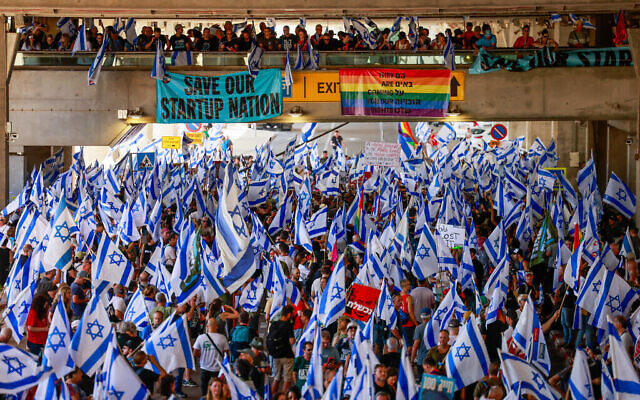
Israel is unique in one other way: Our elites are not only “privileged” but sacrificial. There is no elite like ours anywhere else in the West.
Just when we assumed that the era of sacrifice was over, and the stereotype of Tel Aviv is concerned only with their own interests and pleasure had taken hold in the public imagination, along came the most intense protest movement in Israel’s history. Led by veterans of elite combat units, by men and women who have taken open-ended leave from positions in high tech and academia to devote themselves to saving Israel, the movement is an outbreak of passionate patriotism, a protective embrace of the Israeli ethos.
Over and over, protesters tell interviewers variations of the same story: I’m doing this for my father who was wounded in the Yom Kippur War, for my son who was killed in Lebanon, for my grandparents who were uprooted from Iraq or who survived the Holocaust, for my great-grandparents who helped build the state. Now, they say, it’s my turn to defend the country.
One of the protest movement’s greatest achievements has been in claiming as its symbol the Israeli flag, refusing to cede it to the right. The movement persists week after week, maintaining astonishing turn-outs, because its wellsprings are Jewish history and the Zionist story. This force is unstoppable.
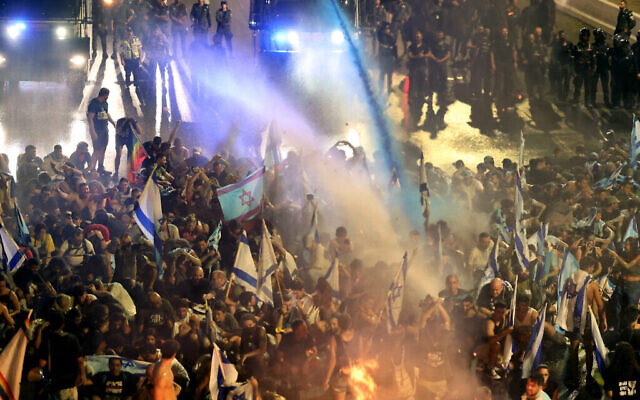
Just as the protest movement is trying to protect the Israeli success story, this government is actively seeking to destroy it. Each party within the coalition has taken responsibility for undermining another aspect of modern Israel.
The far-right zealots are in charge of ensuring that Israel becomes an outcast among democratic nations. The ultra-Orthodox state-within-a-state is laying the ground for the eventual ruin of the Israeli economy, forced to maintain an ever-expanding, chronically under-productive population. And a thoroughly corrupted Likud is in charge of dismantling the independent judiciary, the last line of defense for Israeli democracy.
This government, which promotes itself as the guarantor of Israeli security, is the greatest internal threat to our security in the nation’s history.
Israeli security isn’t only a matter of toughness and posturing. It depends on a complex web that includes national solidarity, a strong economy and civil service, confidence in the competence and judgment of our leaders, moral legitimacy of the IDF among our allies, trust among legal authorities abroad that Israel will monitor itself without intervention from the International Court in the Hague. This government threatens every one of those essential preconditions of our self-defense.
Why we need a strong court
Aside from the obvious reason – the absence of a system of checks and balances that are taken for granted by other democracies – there are at least four challenges to our democracy that require the active vigilance of an independent court.
The first is security. No country besides Israel has faced such a relentless assault on its existence. That situation demands constant mediation between security needs and democratic norms.
Israel isn’t a paragon of democracy because it cannot be. But Israel is a paragon of the struggle for democratic norms under near-impossible circumstances – which would have long since ended democracy in almost any nation in our place. Israel is a laboratory for democracy under extremity, and that is its value for the world. Protecting that achievement requires a strong and independent court.
The second strain on Israeli democracy is the half-century occupation of the Palestinian people. Given the inability to safely extricate ourselves from the territories, the occupation remains open-ended. The court is the only guarantor that the IDF will avoid the temptation of indiscriminate force in fighting terrorists embedded in a civilian population – precisely what the far right is demanding – and that democratic norms will be maintained on the sovereign Israeli side of the green line. This is not hypocrisy, as our critics claim; it is the unavoidable result of living with constant threat.
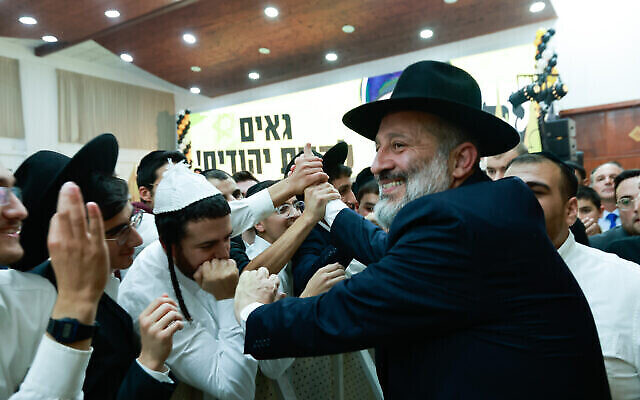
The third strain on our democratic norms is religious coercion. No democracy today lives with the burden of such extensive religious legislation – from banning civil marriages performed inside Israel to banning public transportation on Shabbat. Secular Israel desperately requires a strong and independent court to protect it from further religious encroachments.
Finally, Israel’s essential identity as a Jewish state encourages the tendency of policymakers to ignore the needs of its non-Jewish minority. This is intensified by the fact that our minority is Arab – that is, emotionally and sometimes politically aligned with a region that, until recently, has been overwhelmingly hostile to the state’s existence. The court is the last line of defense for minority rights.
The need for social balance
Israeli society is a delicate ecosystem, requiring constant balance. That is the inevitable result of a nation built on “the ingathering of the exiles,” as Israelis put it, the biblical term that refers to the profoundly complicated process of creating a nation out of a hundred Diasporas, with their vastly disparate experiences and ideas of the meaning of Jewish identity and a Jewish state.
For Israel to remain a minimally coherent society, it must accommodate all those ideologies and ways of life. Go too far in one direction and you risk alienating a substantial segment of the population from the national ethos.
That is what happened in the early years of the state, when the secular Ashkenazi Labor leadership tried to impose its notion of Israeliness on immigrants, especially from the Middle East, a disastrous mistake for which we continue to pay.
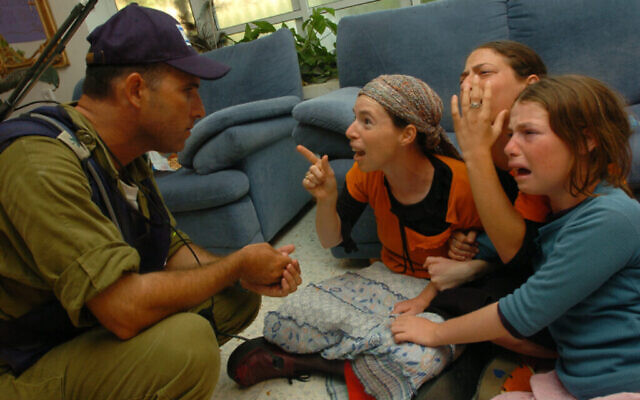
Another destructive process occurred during the 2005 withdrawal from Gaza. I believed then, and still believe, that the withdrawal was essential, that forcibly absorbing nearly two million Gazans into the edges of Israeli society would have been a disaster greater than the need to periodically respond to rocket and missile fire from Gaza. We can manage external threats; the ultimate danger is internalising those threats into our being.
But the way in which the withdrawal from Gaza occurred – destroying people’s lives and dumping them into internal refugee camps – was an outrage. Rather than express solidarity with those whom we uprooted from their homes and thriving communities, we promptly forgot them and moved on to the next crisis.
The consequences for Israeli society of that failure of empathy have been profound. A generation of religious Zionists was radicalised, a process that produced Betzalel Smotrich and his “Religious Zionism” party. The assault on the Supreme Court is one expression of the deep mistrust toward state institutions, and contempt for the democratic ethos, created by the Gaza uprooting.
The religious right continues to see itself as the victim of a liberal establishment speaking in the name of democratic values while trampling on those values to serve its own interests. And yet the religious right forgets how much power it actually wields over liberal Israel.
There is certainly an argument to be made for judicial reform. But in the end, this is not about judicial reform. It is, instead, about whether Israel becomes some kind of synthesis between autocracy and theocracy.
It takes for granted the existence of an intrusive official rabbinate, whose power is becoming increasingly unbearable for secular Israelis. Growing numbers of young people, for example, are refusing to marry under its auspices, forcing them to seek alternative options abroad – to say nothing of the humiliation experienced by hundreds of thousands of Israelis whose families immigrated under the Law of Return and aren’t halakhically Jewish and so unable to marry here.
And then there are the ever-expanding settlements. Liberal Israelis who support a two-state solution share in the burden of defending settlements, including extremist enclaves on isolated hilltops, as part of their army service – presenting acute political and moral dilemmas.
Those realities are not at all self-evident for liberal Israelis. And now, in seeking to neutralise the Supreme Court, the last bastion of liberal power, we feel as if the oxygen is being drained from what remains of our Israel.
All those suppressed grievances are now emerging: Many of the signs at our demonstrations focus on religious coercion, Haredi exemption from the military, settler violence and the occupation. Listening to religious Zionists complain about how a liberal court controls their lives strikes us as ludicrous, a privileged minority insisting on victimhood.
The moral crisis of Orthodox Jewry
Orthodox Jews may be surprised to learn that their community is in crisis. After all, two of their main projects – for Haredim, the reconstruction of the yeshiva world destroyed during the Holocaust and, for religious Zionists, the creation of communities in Judea and Samaria, are thriving as never before, enjoying unprecedented levels of government funding.
In practice if not in name, the Netanyahu coalition is Israel’s first Orthodox government: A majority of its MKs are Orthodox, and the government’s agenda is shaped by Orthodox concerns.
Yet Orthodox Jewry is in moral crisis. Both its Haredi and religious Zionist wings are deeply implicated in the most corrupt government in Israel’s history.
Consider the story of Efi Nave. A former head of the Bar Association, Nave was accused of bribery – trading sexual favors for help in attaining a judicial appointment. But the evidence was deemed to have been illegally extracted by a reporter from Nave’s phone, and the case was closed without an indictment. Nevertheless, Nave was forced to resign his position. In 2022, he was convicted on a separate case of fraud.
In recent elections for the head of the Bar Association, the government chose as its candidate – Efi Nave. This year, those elections were fateful: The government was seeking control over the committee that appoints Supreme Court justices, and the Bar Association has two votes. When Nave lost by a landslide, the government immediately tabled a law that would dismantle the Bar Association and replace it with a powerless body, stripped of its slots on the Judicial Appointments Committee.
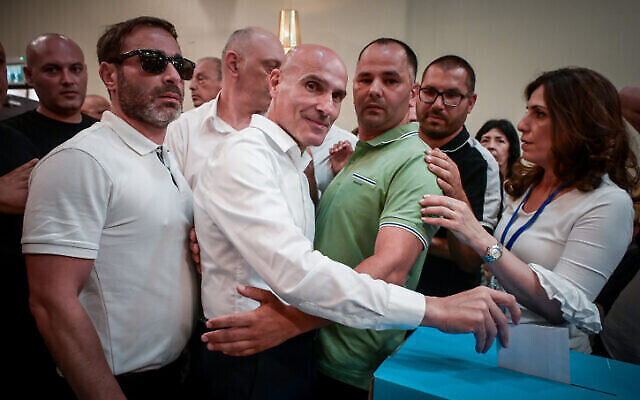
When the ancient prophets warned against the corruption of the justice system, they meant Efi Nave. Yet Orthodox Israel, through its political leaders, actively supported his candidacy. Efi Nave is not an isolated example but a metaphor. This is not politics; it is the end of a credibly Jewish state.
American Evangelicals have been deeply divided over their community’s support for Donald Trump, hardly a model of their religious values. But the moral crisis for religious Zionists is, if anything, more acute. No one expects Trump to embody Evangelical values; but Smotrich, who has called for the erasure of a Palestinian village and for separate maternity wards for Arab and Jewish Israelis, does claim to embody the values of his community.
When Smotrich chose “Religious Zionism” as the name for his extremist party, I was outraged: He had hijacked one of the most noble movements in Zionism for his racist agenda. And yet, given the overwhelming silence within the religious Zionist community toward Smotrich (and toward Itamar Ben Gvir, head of the Jewish Power party), I realised that this wasn’t a hostile takeover after all.
The moral crisis of religious Zionism is most acutely expressed in its response to growing settler violence. With a few noble exceptions, the burning of dozens of Palestinian homes in response to Palestinian terror attacks was greeted mostly by silence.
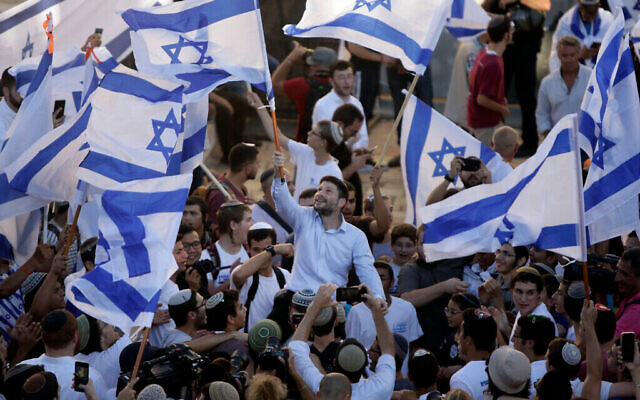
Some in the community seemed far more upset at those of us who called the violence “pogroms” than they were at the atrocities themselves. The voices within the settlement movement that condemned the violence tended to do so on utilitarian grounds: Violence harms our interests.
Religious Zionism has always taken responsibility for the well-being of klal Yisrael, the totality of the Jewish people. And yet the religious Zionist community has largely acquiesced in the shattering of Israeli solidarity over the last half year as a reasonable price to pay for implementing its sectarian agenda.
The condition of Israeli society today is grim testimony to the inability of religious Zionism, together with the Haredim, to effectively lead the Jewish state and the Jewish people.
Orthodoxy and the state
My Jewish life is religious; my Israeli life is secular. I celebrate the secular state that brought us home and taught us how to protect ourselves, that helped us heal as a people after the Holocaust and retrieved Jewish communities from an increasingly dangerous and dysfunctional Middle East.
Maintaining the Israeli success story depends on maintaining the secular state. But the Orthodox community – in both its religious Zionist and Haredi components – has yet to come to terms with the transformation of Jewish life brought about by the convergence of modernity, the Holocaust and the reestablishment of a Jewish state committed to finding its place among the democratic nations. Any attempt to undermine the fundamental identity of the Jewish state as secular and democratic will result in precisely the kind of social rupture we are currently experiencing. The alternative to the secular state isn’t the fantasy of an ideal religious state but ruin.
Religious Zionists need to internalise the difference between a people and a modern state. In Israel’s case, of course, the two overlap. But they are not identical. Zionism not only took responsibility for renewing and re-empowering the Jewish people, but it also created a new people: the Israelis. The Jewish state functions simultaneously on two levels, as the centre point for a transnational people, and as the state of all who were born here.
Israel is, in other words, at once exceptional and “normal.” For liberal Israelis to continue to feel at home in a shared Israeli identity, the state must maintain the delicate balance between its Jewish and democratic commitments, embracing not only Jewish exceptionalism but democratic normalcy.
One crucial expression of democratic commitment is accepting the legitimacy of Arab citizens as part of the electoral process. When religious Zionists say that this government represents a “majority of the people,” they mean Jews. The actual popular vote was a virtual tie. But that is relevant only if one factors in Arab voters, who for many religious Zionists, don’t count as “real Israelis.”
While many religious Zionists understand the need for an expansive Jewish state in which all Jews can feel at home, they often lack an appreciation for an expansive democratic state in which all Israeli citizens can feel at home.
As for Haredim, they need to internalise the difference between a people and a community. A community is by definition relatively homogeneous; while a people is a messy construct, a microcosm of the diversity and contradictions of humanity.
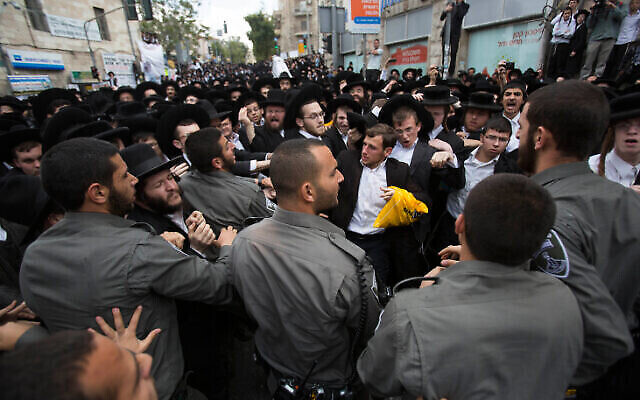
Understandably, Haredim long to recreate the exilic-era condition when religion united Jews around the world – the extraordinary achievement of rabbinic Judaism throughout most of our dispersion. But beginning in the 19th century, religion became our most divisive identity. Among the core facets of the Zionist revolution was centering peoplehood as our common denominator.
That historical development is irreversible. No amount of religious coercion can alter this reality. For Haredim to be truly a part of the Jewish people in the age of sovereignty, they must come to terms with the diversity that modernity has brought to Jewish life.
A government of our wounds
Politically, the Jewish people is divided between two profound forms of anguish. And both are rooted in the Holocaust.
One expression of anguish is over the occupation: How is it possible that the Jews, who endured so much suffering, are so easily reconciled to the role of seemingly permanent ruler of another people? Our other anguish is over the assault on Israel’s existence: How is it possible that, mere decades after the Holocaust, the Jewish people is still forced to defend its right to exist?
The Jewish state functions simultaneously on two levels, as the centre point for a transnational people, and as the state of all who were born here.
Both expressions of pain and outrage are essential responses of a healthy Jewish people. What defines our far left and right, though, is the absence of emotional resonance with the moral sensibility of the opposing camp. On the American Jewish left, singular outrage over the occupation is increasingly leading to alienation from Israel and even anti-Zionism; on the Israeli right, singular outrage over the endless war against Israel has led to this government.
The Jewish rage this government embodies is not only the cumulative impact of the long exile culminating in the Holocaust, but the fact that the assault against the Jews didn’t end there. Instead, we went directly from the Holocaust into a state of permanent war and terrorism and boycott and siege. Jewish statehood gave us the tools to fight back; but statehood only transformed the nature of the assault from a war against Jewish powerlessness to a war against Jewish power.
To understand the inner world of Ben Gvir and Smotrich, consider these lines from the great poet of the Israeli right, Uri Zvi Greenberg. In ‘Holy of Holies’, written just after the Holocaust, Greenberg imagines his mother, who’d been murdered in a Lithuanian killing pit, appearing before him in a vision, speaking to the survivors in the name of the martyrs:
“And when the Redeemer comes and they beat their swords
Into plowshares and throw their guns into the fire —
You will not, my son, not you! …
Lest the goyim rise up again and gather iron
and rise up against us again and we will not be prepared
As were not prepared until now.”
Never trust the “goyim,” the gentiles. The Jews are fated, as the pagan prophet Balaam warned us, to remain “a people that shall dwell alone and not be reckoned among the nations.”
This government is not only imprinted with the wariness and rage of Jewish history. It is also the custodian of one stream of Jewish theology, intensified during the exile, of radical separatism and superiority, a compensatory expression of chosenness and contempt for non-Jews. What was once an understandable response to humiliation has become, in an era of renewed Jewish power, a threat to our ability to distinguish between enemies and friends. Consider the attacks by ministers in this government against Joe Biden, perhaps the most pro-Israel president.
What is being fought out in Israel today is at once a practical struggle over democratic institutions and norms, and a theological struggle over the meaning of Zionism and Jewish history. Was the purpose of Zionism to free us from the ghetto or simply to arm it? To allow our wounds to heal or to indulge them?
In effect, we are divided over two antithetical visions of redemption. Classical Zionism promised to redeem the Jews by returning them not only to the land of Israel but to the community of nations. The founders of Zionism vehemently rejected the fatalism of Balaam and believed that the destiny of the Jewish state would be inseparable from that of humanity. In stark contrast, Meir Kahane and other spiritual leaders of theological ultra-nationalism saw the Jewish state as a Divine instrument for vengeance against the gentiles.
For this camp, each terror attack becomes an unbearable reawakening of all the wounds of our history, and, no less, a violation of the dignity of the Jewish people and even of God Himself. Failure to use the full force of our power against our enemies is not merely a political failure but a spiritual sin.
Growing parts of the ultra-Orthodox world are being drawn to this dark political place where unresolved trauma and compensatory theology meet. Once cautious and even contemptuous of the political extremism represented by Smotrich and Ben Gvir, many Haredim today are sympathetic to its message. Ironically, the rise of ultra-nationalism among young Haredim is an expression of their “Israelisation.”
What is being fought out in Israel today is at once a practical struggle over democratic institutions and norms, and a theological struggle over the meaning of Zionism and Jewish history.
In the last election, Haredi leaders, fearing a defection among their youthful voters, publicly urged them to shun the far right. But in joining this coalition, those leaders have implicitly legitimized the politics of theological rage.
If there is any blessing in the rise of the zealots, it is this: We are finally being forced to face the moral and political consequences of our untended wounds. Ben Gvir is not extraneous to us; whether or not we acknowledge it, Uri Zvi Greenberg’s despair is a part of every Jew’s psyche. To begin the process of healing, we need to own the Ben Gvir moment.
A coalition of grievances
Along with layers of historical wounds and wounded theology, this coalition is also a convergence of more contemporary grudges. The vision that unites the Netanyahu government is grievance.
For Smotrich and the ultra-nationalists, the grievance is openly and repeatedly stated: We are the payback for the Gaza withdrawal. Now those of you who supported the destruction of our settlements will experience your version of despair.
Then there is the ongoing Mizrahi wound. An important debate has been reopened about whether and to what extent Mizrahim remain at a disadvantage in Israeli society. What is clear is that Ashkenazim like me who prematurely celebrated the victory of the ingathering and believed that the ethnic wound was on its way to being healed missed the depth of the ongoing pain – and minimised the under-representation of Mizrahim in key areas of power, from the IDF’s 8200 cyber unit to the Supreme Court and academia. Mizrahi success in reshaping Israeli politics and culture is not enough. This issue is now necessarily back on the national agenda.
At the same time, Prime Minister Netanyahu has shamelessly exploited inter-ethnic tensions. Over the last few years, the most outrageous anti-Ashkenazi expressions, including statements about the Holocaust that in any other context would be vehemently condemned as antisemitic, have become common among some leading Mizrahi Likud activists.

When Itzik Zarka shouted at anti-government protesters, “I wish another six million would be burned,” the media was shocked. It shouldn’t have been; Zarka is hardly alone. Another leading Likud activist, Rami Ben-Yehuda, taunted a minister in the previous government headed by Naftali Bennett, “Go back to the gas chambers!” Oded Hugi, a close adviser to Likud minister Israel Katz, tweeted, “I understand why Hitler slaughtered six million Ashkenazim.” Katz dismissed him, but Hugi showed up the next day at the judicial committee chaired by far-right MK Simcha Rothman, who said he doesn’t hold grudges. Tweets claiming that leaders of the protest movement were the children and grandchildren of Nazi war criminals who slipped into Israel after the Holocaust went viral.
The Haredi grievance remains the loss of their preeminence in the modern Jewish world, especially at the hands of secular Zionism, which replaced the power of the rabbis with a new source of authority. For Haredim, that loss of power is represented most gallingly by the secular Supreme Court. That is why Haredim have been among the most passionate supporters of the judicial revolution.
Presiding over this coalition of grievances is Netanyahu, master of the grudge, driven by the memory of historic wrongs inflicted by the Zionist left on the right, like the sinking of the Irgun ship, Altalena – along with the personal wrongs inflicted on his family. For Netanyahu, a direct line connects his father’s inability to secure tenure in Israeli academia, presumably because of his rightwing politics, to “the left’s” purported judicial vendetta against the son.
Never mind that both the attorney general and the police commissioner who initiated the investigation into his alleged corruption were men of the right and his own appointees. Netanyahu is at war with ghosts.
For that same reason, he perceives the massive protests against him as a conspiracy of “the left” – which hardly exists anymore as a political force. He continually underestimates the popular nature of the democratic movement, along with its patriotic motives and resolve.
Yoav Horowitz, one of Netanyahu’s former closest associates, who served with him in the Sayeret Matkal commando unit and was the director general of the prime minister’s office until 2019, said recently: “He won’t rest until the courts are on the floor, begging for forgiveness.” Netanyahu’s war against the legal system is first of all about extricating himself from prison; but it is also about revenge.
How we will win
Netanyahu’s supporters believe that the country will suffer if his judicial revolution falters; liberals believe that the country’s existence will be threatened if he succeeds. That gives us the decisive edge of desperation.
To win, though, will require tempering our desperation. That means, first of all, affirming the peaceful nature of our protests. Though the government has, from the beginning, attempted to portray us as violent and hateful anarchists, our protests have been extraordinary models of restraint. That restraint is now being tested by growing police brutality, inspired by the Minister for Internal Security, Ben Gvir – validating the very fears that have driven us into the streets.
We need to take a collective deep breath and prepare for a protracted struggle – mindful of not alienating the majority of Israelis whom polls consistently show oppose the government’s judicial agenda.

Most of all, we need to avoid despair. We need to stop invoking demography as if liberal Israel is fated to become an increasingly irrelevant minority. Who knows what will happen here? Who can predict whether the Haredi community, for example, will manage to maintain its state-within-a-state, especially if massive government subsidies are eventually curtailed? There is no country that is subject to more abrupt historic changes than Israel. Anyone who rides the Israeli rollercoaster long enough knows the unpredictability of its sudden lurches.
The ultra-nationalists and theocrats have already overplayed their hand. The majority that remains committed to a Jewish and democratic state is recoiling from this government of catastrophe. In the coming months, as the social and economic consequences of the judicial revolution become clear, that process will only intensify.
Finally, there is the question of our future relationship with our political opponents, especially the ultra-nationalists. I always took for granted that the greatest threat to the well-being of the Jewish people is schism – “sinat hinam,” needless hatred. The last months have forced me to revise that understanding: The greatest threat we face is zealotry. Ancient Judea fell not primarily because of hatred among Jews but because fanatics provoked a hopeless war against Rome and then proceeded to burn the granaries within besieged Jerusalem. Zealotry is the cause; hatred, the consequence.
Netanyahu’s supporters believe that the country will suffer if his judicial revolution falters; liberals believe that the country’s existence will be threatened if he succeeds. That gives us the decisive edge of desperation.
Along with zealotry, our ancient ruin was quickened by corruption – a corrupt monarchy and priesthood. And it is precisely the convergence of zealotry and corruption that defines the Netanyahu government.
I confess: I feel betrayed by those of my fellow Israelis who continue to enable this government – and that is not a healthy place in which to be.
What is especially painful for me about this time is the loss of instinctive solidarity I always felt with all parts of the Jewish people. I have built my career around writing about and engaging with Jews across the political and religious spectrum, along with people of other faiths. Engaging with “the other” has been both my professional and spiritual commitment. In the words of the rabbis, “Elu v’elu divrei Elohim chaim” – both these and these are the words of the living God.
There is certainly an argument to be made for judicial reform. But in the end, this is not about judicial reform. It is, instead, about whether Israel becomes some kind of synthesis between autocracy and theocracy.
That will not happen because we will not let it happen. But even as we struggle, we need to consider the morning after this government is defeated. I don’t know how I will come to trust the Netanyahu camp again as a partner in building and defending the state, but I know that if we don’t manage to restore some minimal cohesiveness here, we are lost.
This country is too small, too intimate, too embattled, to turn our deep debates into irreconcilable schism – like the kind of fantasies circulating among some liberal Israelis of a new “two-state solution,” the theocratic state of Judea and the liberal state of Israel. If we have returned home only to recreate the dysfunctional conditions that led to our ruin the last time we were here, then Jewish history will be the story of failure.
No people is more capable of turning disaster into triumph than the Jews; and, we fear, no people is more capable of destroying its own achievements. The Torah, which understood our collective strengths and weaknesses, was not subtle: “I have set before you death and life, blessing and curse; therefore, choose life.”
The Israeli success story of the last 75 years was based on a model that made place, however imperfectly and uneasily, for the whole Jewish people. Refining and strengthening that model is the way to continue to choose life.

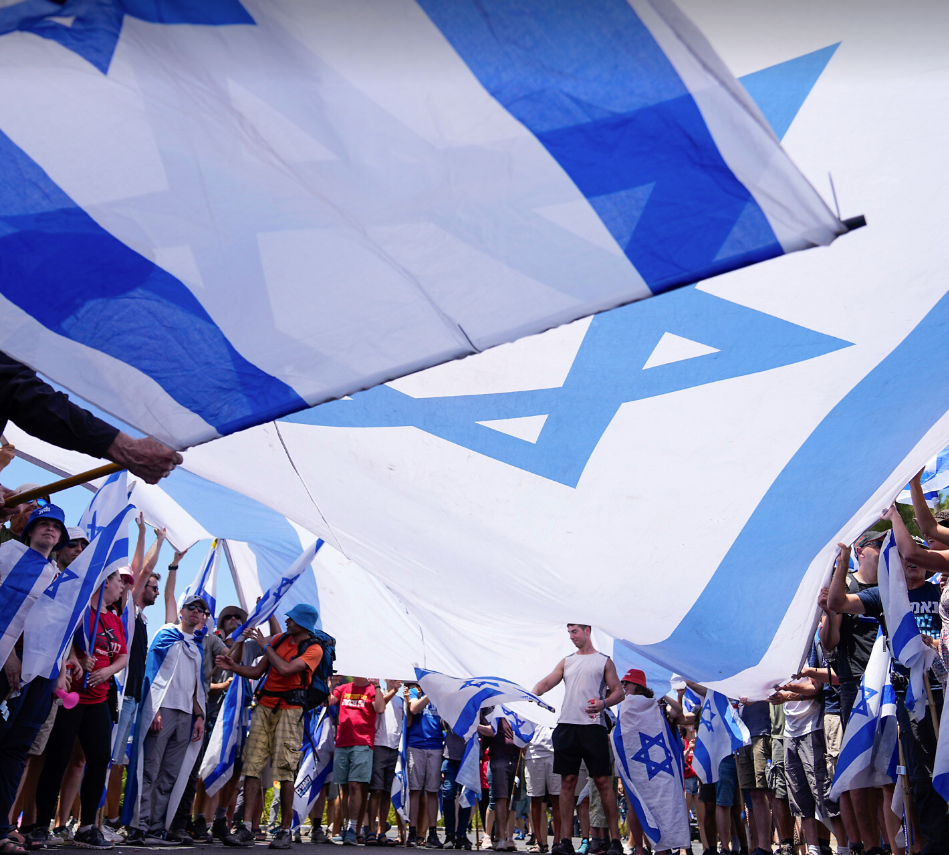
comments